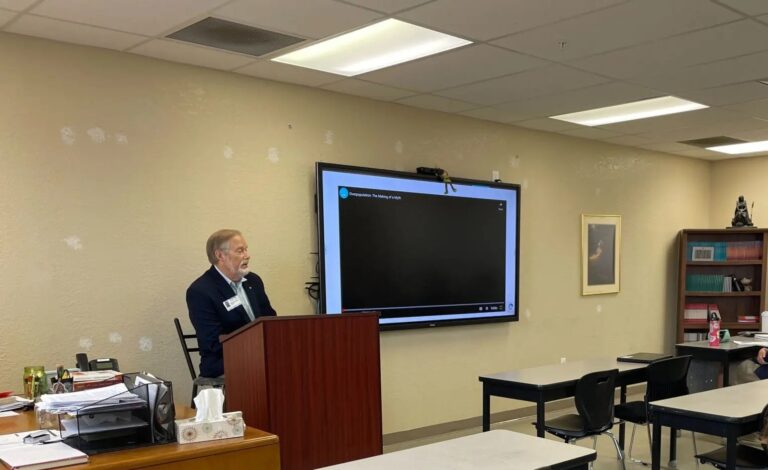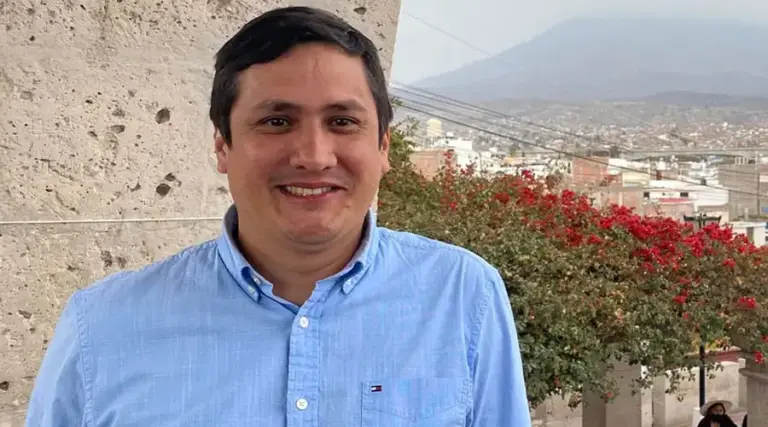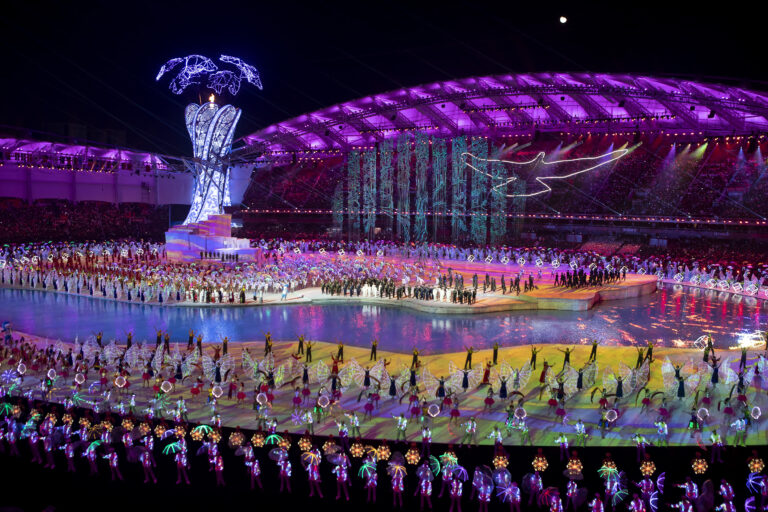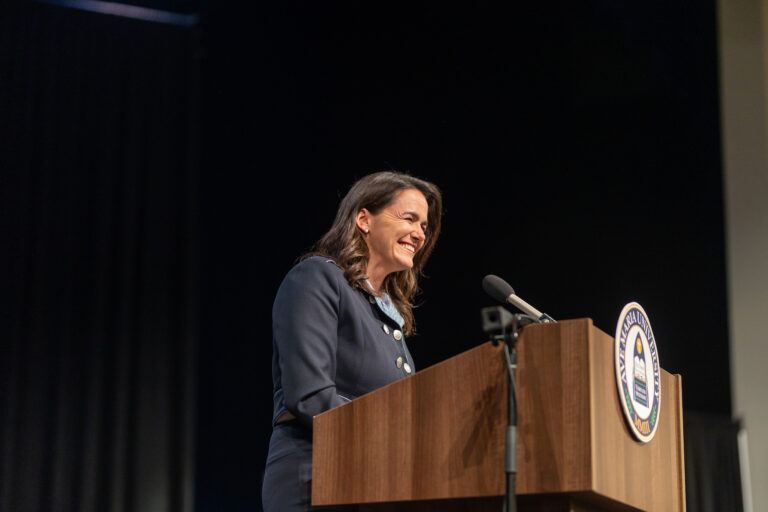As the new administration of the United Nations works to plan and implement reforms that will enable the organization to per- form more faithfully and more effectively its core mission of promoting peace and understanding among peoples of widely disparate cultures and values — and as the United States Congress considers whether to approve the Clinton Administration’s request for almost a billion dollars to settle the longstanding dispute over U.S. arrearage to the UN and its related agencies — it is particularly important the UN focus its energies on issues that are consensus builders, not consensus breakers.
I am therefore shocked and saddened to learn of an ongoing project by at least three UN agencies for the large-scale performance and promotion of abortion among refugees, displaced persons and other poor and vulnerable women around the world.
I first learned of this project almost a year ago, when the United Nations Population Fund (UNFPA) announced that it would be providing “reproductive health care kits” to 200,000 refugee women in the Great Lakes region of Africa. These kits would be distributed in co-operation with the United Nations High Commissioner for Refugees (UNHCR) and would include what UNFPA called “post-coital contraceptives.” At a time when we were unable or unwilling to do whatever it took to get basic food and sustenance to these desperate people; when thousands were dying from cholera and other diseases, massive expenditures on less urgent needs such as “’reproductive health care kits” suggested a badly skewed set of priorities. Furthermore, “post-coital contraceptives” was a code phrase for chemical abortifacients — devices or drugs that are designed to destroy an unborn child after it has already been conceived.
Despite the promises made at Cairo, Beijing, and other international conferences that international promotion of reproductive health care would not include abortion, it seemed that UNFPA and other UN agencies had yet to learn that there can never be a true international consensus behind a program that provides support for abortion.
I have since learned that the Great Lakes project was only one aspect of an ongoing project to bring abortion into refugee camps around the world. UNFPA and UNHCR are about to finalize an “Inter- Agency Field Manual” entitled “Reproductive Health in Refugee Situations.” This manual would require not only that refugee women be given pills to induce early abortion, but also that every refugee camp be equipped with “vacuum aspiration” equipment for what the manual calls “uterine evacuation.”
The use of Orwellian terminology to mask the nature and purpose of these procedures is no accident. Early documents in the refugee reproductive health project apparently used the word “abortion,” but these references were purged from later drafts after a “preparatory meeting” in April 1995. The proceedings of the preparatory meeting make clear that there was a deliberate decision that “the term induced abortion should be discarded throughout the document,” and replaced with “alternative legitimate terminology” such as “menstrual regulation or evacuation.” This was in order to “reduce the sensitive nature of the subject matter.” It was also decided that “the name of Subkit 1 (which includes the vacuum aspiration machine) should be changed from ‘Pregnancy Termination’ to ‘Treatment of Incomplete Abortion.’ This difference in terminology will reduce the risk of offending sensitivities and possibly make the Subkit more acceptable.”
Although the publicity about the “emergency post-coital contraception” pills has dealt almost exclusively with the case of rape, the draft manual also directs that they be made available to women, who have not been raped but have had “unprotected” or “unplanned” sex.
A companion document by the World Health Organization, also in the process of being finalized, announced that these abortion pills and vacuum abortion devices should be provided not only in refugee camps but also in all primary health care centers. These centers are the most basic facilities for the world’s poorest people — doctors do not typically staff them and they do not typically have penicillin or other basic drugs — but they will now have abortion equipment.
The WHO and UNFPA/UNHCR documents pay lip service to the idea that abortion should be provided only where it is legal, but the proceedings of the preparatory meeting suggest that “the legal right of maternal health should not … be ‘secondary’ to the laws against abortion” and follows this logic to the candid conclusion that “if health is the priority then abortion is allowed in all cases.”
The WHO document suggests that if refugee women or local religious or political authorities object to the “post-coital contraceptives” on the ground that they are really a form of abortion rather than contraception, health care providers should respond that this is “misinformation.” This is because WHO has chosen to define pregnancy as beginning not at conception but at implantation. By suggesting that health care providers treat this highly debatable conclusion as a scientific fact, the WHO uses obfuscation in an effort to overcome the most deeply held values of these vulnerable women.
The UNFPA/UNHCR project would also ride roughshod over the values of health care providers who do not wish to become abortionists by imposing abortion as a requirement for them to keep their jobs. The proceedings state that “training in the provision of abortion should be just one obligatory component of the training course on reproductive health procedures offered to field practitioners.”
The fact that the WHO, UNFPA and UNHCR need to use coercion and deception makes clear that the effort to promote abortion among refugee women is driven by population-control ideology, not by need or demand. I have been a strong supporter of U.S. and U.N. refugee programs, and I work closely with refugee advocates. I am told by refugee workers that if UNHCR would only ask the people in the field — or the refugees themselves — where we should spend our refugee protection dollars, they would say that the greatest needs are for more and better food, safe water, and shelter. Refugees and many refugee workers also believe there is a desperate need for resources to provide resettlement and local integration as alternatives to forced repatriation. Abortion pills and vacuum aspirators would be nowhere on the list.
Finally, I am also informed that these devices may be dangerous to women. In the conditions that typically prevail in refugee camp medical facilities, and with the poorly-trained personnel who are the only ones available to administer care in some of these facilities, these devices and chemicals will almost certainly result not only in the deaths of thousands of unborn children but also in increased maternal mortality.
I understand that Dr. Sadako Ogata, the United Nations High Commissioner for Refugees, has not yet given this manual her final approval. I urge her, as well as Secretary General Annan, to reconsider and reject this awful proposal, The world is already a tough enough place for refugees, and the coalition that wants to protect them instead of forcing them back to dangerous places is already too fragile. In order to build consensus — and to allow pro-life legislators in the United States and elsewhere to vote with a clear conscience for funding of UNHCR and other international humanitarian agencies — it is crucial that we keep these agencies out of the abortion business.
Christopher Smith is the Chairman of the House Subcommittee on International Relations and Human Rights.










